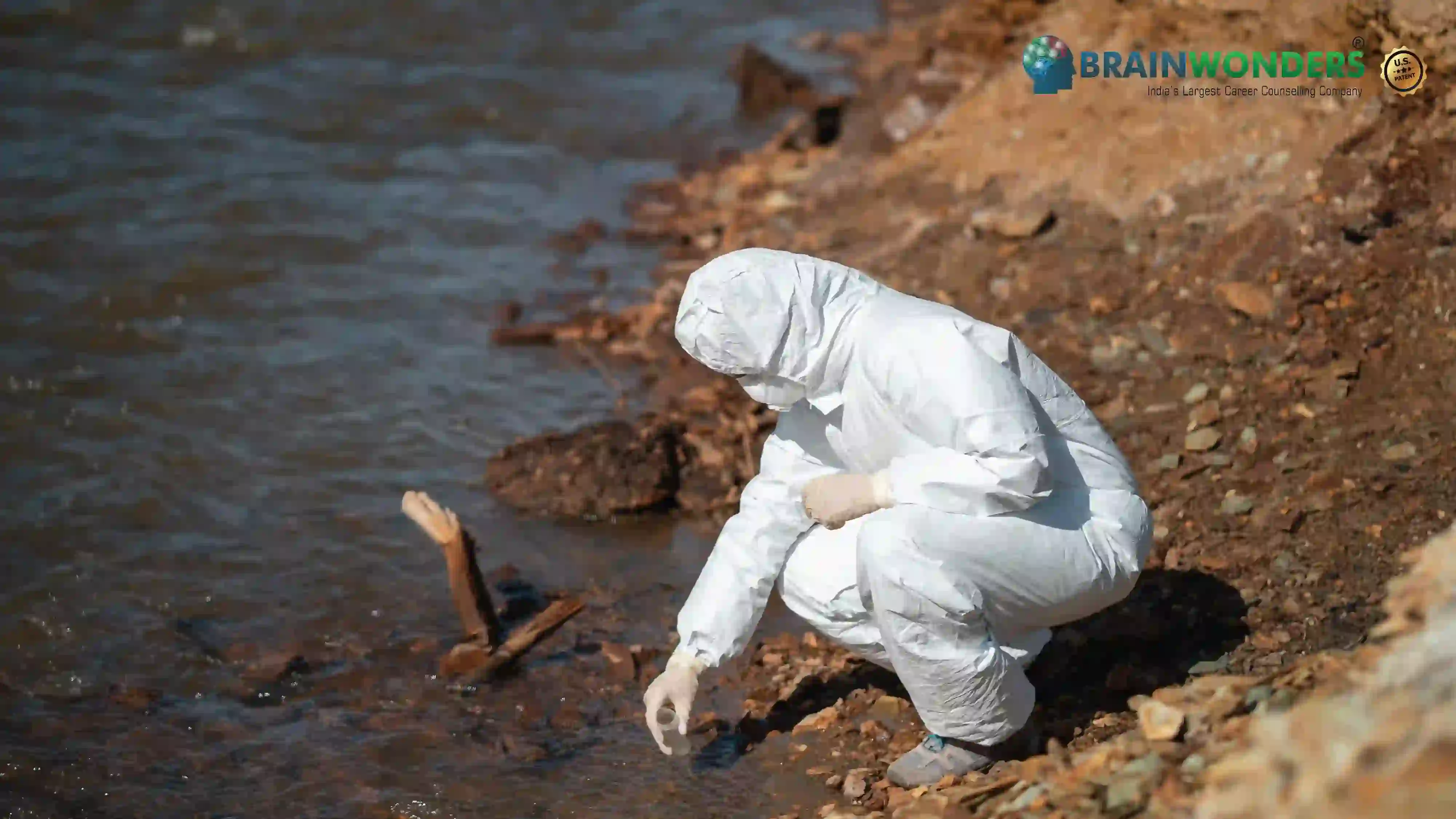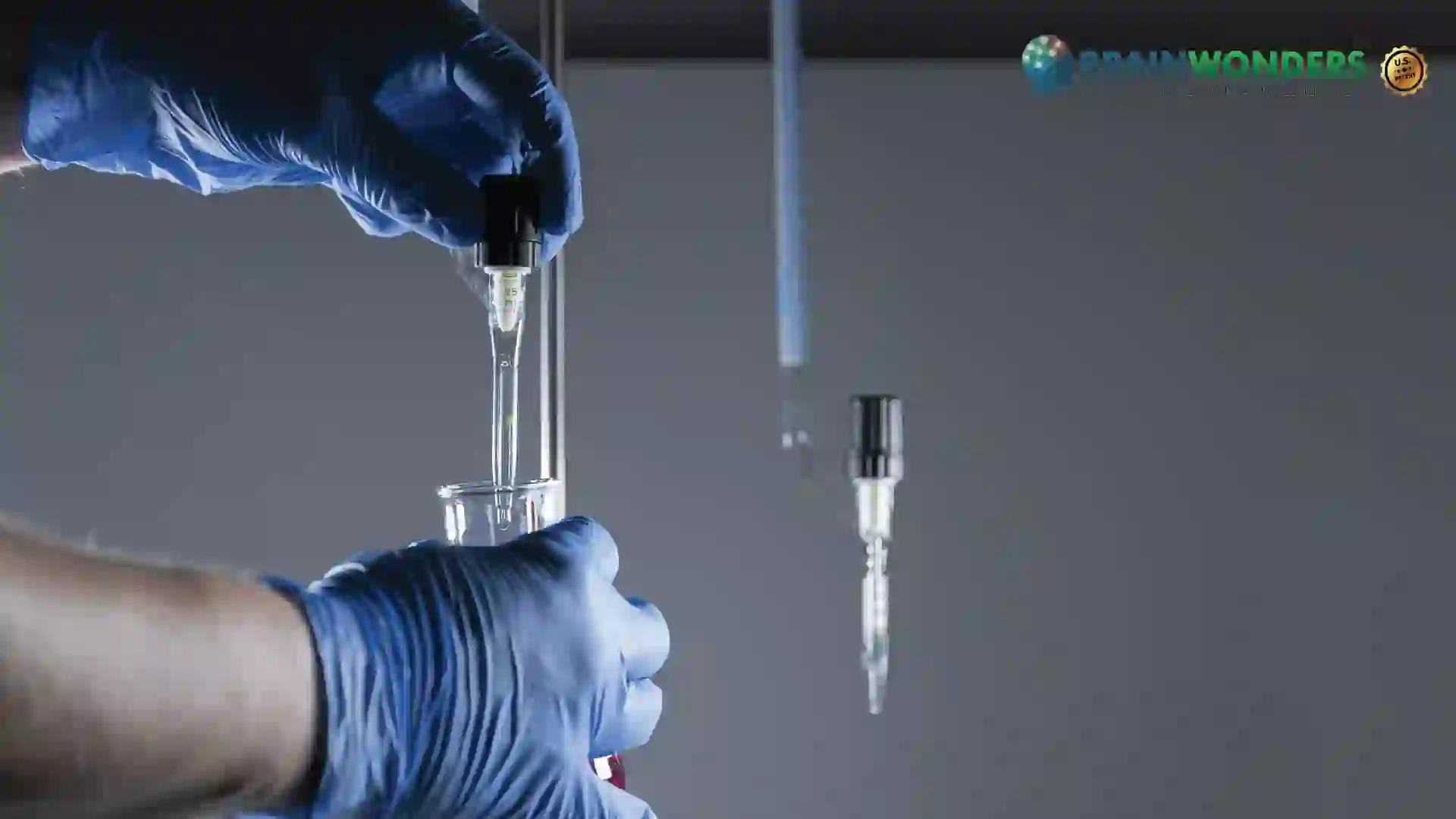How to become an Environmental Scientist
Overview, Courses, Exam, Colleges, Pathways, Salary

Overview
Who is Environmental Scientist ?
Environmental science is the study of an object's physical environment. Environmental scientists study interactions among physical, chemical, and biological components of the environment. An Environmentalist, also known as Environmental Scientist, Conservationist, and Preservationist, is a professional concerned and studies about protecting the elements of the environment - air, water, animals, plants, and other natural resources from harmful pollution, degeneration, and other contaminants. An environmentalist also helps individuals learn to make the best use of natural resources without any long-term side effects on the environment.
There is a need to preserve our environment; hence, environmental science is vital in our lives. The role of Environmental scientists focuses on the degradation of the environment, pollution related to human activities and their adverse impact on biodiversity and the sustainability of nature. It is their responsibility to investigate the causes of environmental deterioration. Furthermore, environmental Scientists try to rectify imbalances caused to the environment by human activities. They are also involved in conservation programmes, examining observations, and measuring air, water, soil, food, and other aspects to improve and preserve the environment.
Typical day at work
What does Environmental Scientist do?
- Collecting, analyzing and interpreting data using the information to create solutions to environmental problems
- Examine surveys and samples collected on-site and perform historical research to identify and assess threats to the environment and causes of environmental damages
- Recommends solutions for policy creation, expansion or procedure modification
- Test water quality in sources near to a manufacturing plant or to identify sources of pollution in groundwater
- Preparing risk assessments on the potential impact on ecosystems by construction sites
- Write technical proposals and prepare and give presentations to policy makers based on research
- Detect and manage treatment of toxic waste from industries, municipalities, refineries, distilleries, mines, fertilizer plants using microbes
- Decide data collection methods for research projects, investigations, and surveys
- Collect and compile environmental data from air, soil, water, food, and other samples for scientific analysis
- Plan to prevent, control, or fix environmental concers like land or water pollution
- Provide information and assistance to government officials, businesses, and the public on possible environmental hazards and health risks
- Review current scientific literature to stay well-informed of developments in the field
- Record and store observations, samples and specimens in the lab and in fieldwork
- Develop systems to better analyse data
- Create project timelines and budgetary metrics
- Train and supervise administrative support staff
- Create grant applications to be awarded funding
- Examine and report on breaches of environmental guidelines
- Run community education programs
- Provide assistance in environmental emergencies like chemical spills and accidents
- Rehabilitate land, water and air disrupted by mining, construction, degradation or pollution
- Conduct environmental audits.
Abilities and Aptitude needed
What are the skills, abilities & aptitude needed to become Environmental Scientist?
Foremost, an environmentalist must have sensitivity and dire commitment to environmental preservation, protection, and repercussions of environmental degradation and pollution. In addition, they must have a broad understanding of local, national and global environmental issues and natural phenomena. They should also be interested in geography, geology, botany, chemistry, and zoology.
Along with understanding how to operate and set up complex laboratory machinery, environmentalists should value precision and be comfortable working with equipment that requires careful monitoring. In addition, aspirants must need to develop specific skills like good interpretation skills and competence in developing arguments from scientific, ethical and philosophical perspectives.
They need to have the ability to plan and manage projects. They tend to be investigative, intellectual, reflective, and inquisitive individuals. They are curious, systematic, scientific, logical, rational, and analytical.
They need physical stamina as they may work on their feet for long periods while collecting samples and at times. They should also be flexible to work in all kinds of environments.
Environmentalists should be able to communicate effectively, both verbally and in writing, their research processes and findings. In addition, they usually work in or lead research teams and must be able to motivate and direct other team members; thus, interpersonal and project management skills are necessary.
Environmentalists need observation skills and be detail-oriented to conduct and monitor scientific experiments and analyses with accuracy and precision. This also requires environmentalists to have the perseverance to work for a cause irrespective of monetary returns.
They need critical thinking and problem-solving skills to find solutions to complex environmental problems and draw conclusions from experimental results through sound reasoning and judgment.
They regularly use complex mathematical equations, statistics, and formulas in their work. Lastly, they must be able to manage time and prioritise tasks effectively while maintaining the quality of work.
Salary
Salary for Environmental Scientist?
The minimum salary of a bachelor’s degree holder in environmental scientist is around Rs. 3 to 4 lacs per annum. With a good experience and masters or Ph. D degree, the average salary can go up to Rs. 6 to 8 lacs per annum. Salary packages also depend upon various factors such as the size of the organization, sectors, working location, education and various other factors.
Pathways
How to become an Environmental Scientist?
Entrance Exam
Entrance Exam for Environmental Scientist ?
To enroll into a Bachelor’s / Master’s program, it is essential for the aspiring candidate to clear entrance exams conducted by various educational institutes.
Courses
Which course I can pursue?
Best Colleges
Which are the best colleges to attend to become an Environmental Scientist?
Industries
Which Industries are open for Environmental Scientist?
- Environmental monitoring organizations
- Environmental consultancies
- Universities
- Industries
- Distilleries
- Fertilizer plants
- NGOs, Pollution Control Boards
- Public Institutions
- Private Industries and Firms
internship
Are there internships available for Environmental Scientist?
The internship allows students to gain experience working in the organisation while studying at University. The internship will help to provide knowledge in subjects like determining the data collection methods for research projects, investigations and surveys, analysing samples, surveys and other information to identify and assess threats to the environment, develop plans to prevent, control or fix environmental problems such as land or water pollution, collect and compile the environmental data for scientific analysis from the samples of air, soil, water, food, and other materials, prepare technical reports and presentations that explain their research and findings.
Career outlook
What does the future look like for Environmental Scientist?
Some environmental scientists start their careers in related fields, such as hydrology or engineering, and then move into the more interdisciplinary field of environmental science.
As environmental scientists gain experience, they earn more responsibilities and autonomy, and may supervise the work of technicians or other scientists. Eventually, they may be promoted to project leader or other management or research position. They work in the field as well as the laboratory, thus, travel may be necessary.
Environmentalist can work in Central, State or Local government organizations to determine appropriate land uses, monitor chemical or biological levels in the environment, and create and regulate policy changes.
An Environmentalist can also get a job in Private companies to determine the environmental impact of corporate practices and guarantee regulatory compliance. They can also work as Environmental educators and teach students environmental science and related subjects.
Other job profiles and prospects include environmental biologists, environmental consultants, environmental activists, environmental journalists, and environmental engineering.
Aspirants can apply for a research degree in government organizations. Aspirants with M.Sc. degree in Environmental Science can find many lucrative career opportunities in India as well as in abroad.
Environmental science career collaborates with other human science professionals for making policies, ways to modify human behavior in order to avoid harmful effects on the environment.







